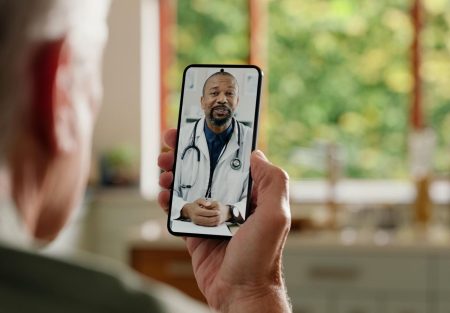Richard Carranza is Chief of Strategy and Global Development at IXL Learning.
Educators can give their communities a powerful tool that will help alleviate entrenched socioeconomic disparities. The resource is important for maintaining self-esteem, sharpening problem-solving abilities and honing conflict management skills. It is essential for high school graduation and crucial for success in secondary education. The benefits it provides are intergenerational, passed down from educators to their students and their students’ children.
This tool is vital for maintaining a functioning society. Governments use it to assist citizens in voting, following medical instructions and even navigating around town.
The tool is literacy, and unfortunately, far too many people do not have enough of it.
If you can easily understand this sentence, then you can do something that one in five American adults struggle with. Roughly 48 million of your neighbors—the populations of Oregon, Washington, Georgia, Pennsylvania, Michigan, Nebraska and Delaware combined—have difficulty with everyday tasks because of their inability to read. Many can’t read at all.
To prevent the pool of adults who struggle with reading and writing from expanding, we need to employ new technology, updated research and modern teaching methods to address the problem where it begins—early childhood.
A Pendulum Swing Toward Science-Based Reading
According to the National Center for Education Statistics, the average fourth-grade NAEP reading score in 2022 sank to a point “lower than all previous assessment years going back to 2005 and was not significantly different in comparison to 1992.”
We are in a crisis of academic stagnation, but the worst could be yet to come. If students cannot read proficiently by the third grade, they may be held back, struggle to catch up and become four times less likely to graduate from high school. This would jeopardize the lives of millions of soon-to-be adults who would have to navigate the world without fundamental skills for success.
As schools grapple with declining reading scores, the pendulum of instruction recently swung toward “structured literacy,” which emphasizes the systematic and explicit teaching of literacy components. Structured literacy is based on the science of reading, a body of research about what matters and works in literacy instruction.
Forty-five states and Washington, D.C., have now passed at least one bill related to reforming reading instruction, with many of them emphasizing the science of reading. However, many educators are not fully trained on how to instruct using the latest research-based practices and are usually juggling competing priorities that make it difficult to quickly get up to speed.
Edtech has emerged as an innovative tool to structure learning, improve teaching with evidence-based practices and ensure that academic stagnation is no longer an unavoidable tragedy.
Transforming Literacy Instruction With Edtech
In a traditional classroom, educators were often unable to meet the daily needs of every student, especially while addressing learning loss. However, in our “new normal” era, technology has emerged as a powerful tool to align instruction with the science of reading and boost achievement.
When learners struggle with reading or writing, it can be challenging for teachers to untangle the problem and provide the right support. This is why formative adaptive assessments are critical to learning recovery strategies. They help educators evaluate skill levels, pinpoint knowledge gaps across the science of reading’s pillars and provide personalized instruction that builds reading skills more effectively.
Assessments should also be used to help children who have suffered the most. Until recently, remedies for learning disabilities were only available to those with time and money, but the proliferation of edtech is changing that paradigm. Educators and lawmakers are increasingly mandating and providing millions of dollars of funding for digital assessments like dyslexia screeners because they have incredible potential to identify at-risk students.
Other tools like reading modes, multi-sensory lessons and personalized activities help students with learning differences grow their reading skills by reducing their cognitive load. Moreover, AI is becoming an incredible partner for teachers, as it automates time-consuming tasks such as assigning skills and grading assignments. This frees up educators to spend quality time with students and accelerate reading and writing performance.
Holistically Revamping Literacy Education
These innovative resources support students in building knowledge and fluency at their own pace, enabling teachers to provide individualized, explicit and systematic instruction to all learners. However, innovation alone is not enough. The decline in early literacy scores is a complex issue that spans K-12 education, college courses, teacher preparation and professional development. That means we need a holistic strategy. Isolated changes, like replacing one bald tire on a car with all of them worn out, will not be effective.
A national commission with representation from all levels of education could provide guidance on how to teach children how to read, highlight research-based edtech tools, and recommend how to integrate the science of reading into teacher preparation programs and professional development. We should also reorient our relationship toward technology in the classroom (to think that teachers once suspended students for using devices in school!) and implement it to teach in a multi-dimensional way.
Additionally, universities and teacher preparation programs should require mandatory coursework on reading instruction rooted in the latest research. These steps are important because educators often enter the profession without the necessary training in science-based reading instruction. Local conversations between school districts, superintendents, teacher associations and unions are also essential for this to work, and states should play a leading role in determining necessary credentialing requirements for educators.
By merging innovation, research and pedagogy, we can transform the way we teach and learn how to read. The combination has the potential to jump-start a new era of academic achievement. It could also be the beginning of the end of illiteracy.
Forbes Technology Council is an invitation-only community for world-class CIOs, CTOs and technology executives. Do I qualify?
Read the full article here









